Laurence Tommasino : “In 2023, our challenge will be to step up our efforts to adapt our operating methods to different geopolitical contexts”
As we start the New Year, it’s time to take stock. Laurence Tommasino, Geres executive director, tells us about the highlights for Geres in 2022, its sources of pride and its prospects, as well as the geopolitical state of play in some of the countries where we operate against a backdrop of political crises. Interview.
After two years marked by the pandemic, Geres is getting its breath back in 2022, with a return to something close to normality as regards field activities. Could you tell us some more about this?
L.T – Yes, with 2022 bringing an end to lockdowns and giving everyone the chance to travel again (in moderation!), we see a return to more face-to-face communication between colleagues and with our partners. That means more opportunities to get to grips with field realities, measure the effects of our work, think about future activities and share experience and practice, not to mention engage in pleasant social interaction.
What highlights have there been for Geres in 2022?
L.T – There were many, but two stand out in particular for me, because they show how commitment over a long timeframe and the involvement of all the stakeholders are the key to the success and sustainability of the services.
The creation of the IRA2E (Inter-Réseau Agriculture Energie Environnement) Association, which has been working for more than 15 years since the initial initiative was launched by Geres, offers a very good illustration. These days, the formalized association brings together a wide variety of partners from the agricultural world in the Provence-Alpes Côte d’Azur region, with each of them contributing their own skills.
In the same spirit, the formalization and start-up of the Malian social enterprise GBA (Green Biz Africa), which is taking on the task of managing the Green Business Zones, is the result of a long-term commitment on the part of the teams in Mali.
The relevance of the operation and the quality of its implementation, encompassing both social engineering and an economic and technical dimension, has spoken volumes, leading two recognized Malian investors to take stakes in the capital of GBA.
In both cases, there is huge satisfaction for me because the ability to pass the baton from Geres to stakeholders who will go on to develop the services is the best indicator of success. Patience, humility and inventiveness are required, but there is the reward, at the end of the day, of knowing that an organization like Geres has played its role to the full.
Amongst these highlights, do you have one or more reasons for pride to tell us about? And what could be improved?
L.T – Of course there were other sources of pride and once again the list is not exhaustive: I’m proud to see volunteers joining us and working with us on citizen mobilization! Proud of the expressions of gratitude and congratulations from our partners after the seminar on 24 November, which shone a spotlight on all the activities undertaken by Geres in France and internationally to combat household energy poverty.
- Proud that Geres has been getting together with other NGOs and associations to explore ways to reduce the carbon emissions of our organizations and talk about the climate-compatibility of the projects we are developing.
- And rather than just looking for improvement, I would say that tomorrow’s challenge is to step up our capacity to adapt to change.
In the field, we are facing more and more complex geopolitical and security situations obliging us to think about adapted methods of operation. International aid is evolving, becoming concentrated, with increasingly large-scale projects, and focusing more directly on local stakeholders.
The private sector (businesses, investment funds, foundations, etc.) is increasingly making its presence felt and, while it may not see development in the same way as institutional donors, its approach is complementary. Geres needs to adapt to all this, in liaison with local stakeholders and through forging strategic alliances.
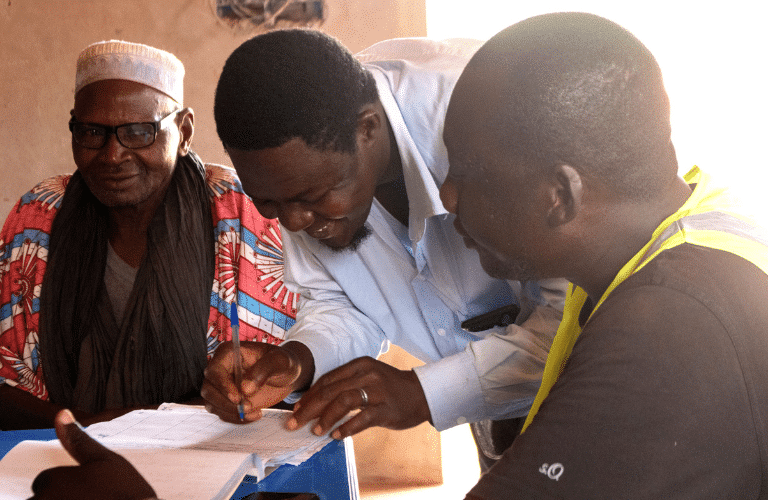
Amongst the major changes in 2022, Geres has fostered the emergence of a volunteer group, a completely new approach for the association. Why has this turn been taken? What are the next steps?
L.T – A first group of volunteers came together in our local area. This reflects a desire on their part to commit to the cause of Climate Solidarity and a wish on the part of Geres. For Geres, it means widening its voluntary sector base and being able to rely on these volunteers to promote Climate Solidarity. In 2023, in liaison with the mobilization officer, they will be facilitating more and more citizen mobilization activities.
Our thanks to Dalila, Pierre, Coralie, Magali, Camille, Elhaam and Célia, to everyone already taking our side. Their precious support breathes new life into Geres. And we are happily looking forward to welcoming more volunteers, setting up other groups and giving everyone the opportunity to take action for Climate Solidarity.
What are your ambitions for 2023 ?
L.T – What we are hoping to do in 2023 is:
- Engage in strategic thinking about our operating methods. How effective are we and on what conditions, how do we manage risks … depending on the context and our geographical focus.
- Adapt our operating strategies and start activities in new geographical areas.
- Move Geres governance forward, by seeking a larger number of members and looking into the establishment of local advisory boards to talk about current or future activities with the teams in the various countries where we work.
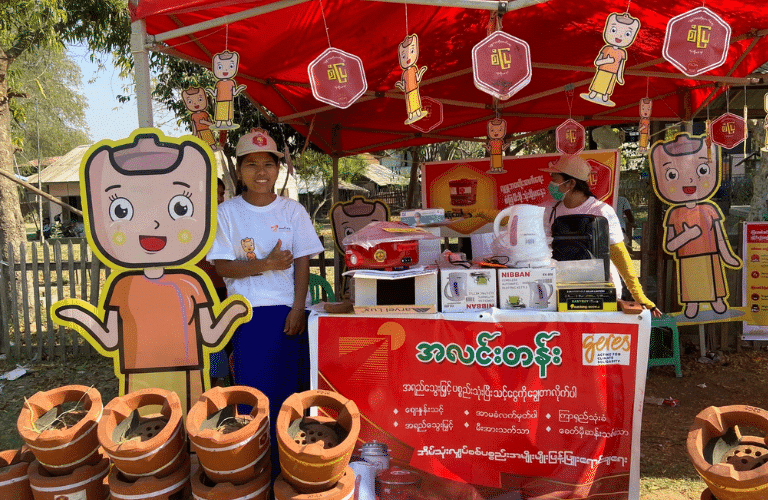
It is also clear that the political context in some of the countries where we work is presently difficult and has local effects on the colleagues involved. What is the state of play and what are the future prospects?
L.T – I would like first of all to salute again the commitment of the teams in three countries particularly hard hit by crisis since 2021. So it’s bravo and thank you to our Afghan, Malian and Burmese colleagues.
Nothing is easy when work has to be done under such conditions: difficulty in making as many field visits as required, strict security rules to be followed, complex, time-consuming administrative requirements, …
Prospects differ greatly from country to country. In Mali, despite the destabilizing effect of the sudden termination of an agreement with AFD, we are continuing to scale up the number of ZAEs with Swedish funding and in partnership with the GBA enterprise. In Myanmar (Burma), we are supporting several initiatives which we plan to continue if the European Union accepts the proposal, developed with Gret, for a large-scale programme we would like to get under way in 2024.
Finally, regarding Afghanistan, we decided a few days ago to close our office in the country, feeling that to continue while women are no longer allowed to work for either international or local NGOs would mean going against our values and our charter, making us complicit in an unspeakable discriminatory decision.
It is with great sadness that Geres had to resign itself to taking this difficult decision, because it means moving away from the country and the Afghan people at a time when they face a dreadful situation. Fortunately, Geres long experience and know-how in Afghanistan have not left the country because we began to transfer skills to our local partner several years ago. Moreover, retaining the link with this partner will enable us to work in the country once again when conditions allow.
Are you optimistic about the challenges before you?
L.T – If we all, employees, members and board of directors, stand together, if we engage with collectives such as Groupe Initiatives, Coordination SUD or Cler, we shall overcome the difficulties and advance our cause of Climate Solidarity. As mentioned above, the challenge will be to adapt the way our organization functions and operates in different contexts.
The fundraising campaign ended on 31 December last. Would you like to share your feelings about the generosity of the public at the end of 2022 in the light of the crisis situation?
L.T – A big thank you above all to all our donors! Apart from their financial significance, these donations are very strong signs of recognition for the whole team. The trust you show us is motivating and stimulating because it means we are going in the right direction.
The amount of donations is nevertheless lower this year than last. Of course that is a disappointment and means a loss of income. We do understand, because inflation also affects the ability to donate. Let us hope that the situation will be better at the end of 2023, that generosity will not be stifled and will keep its universal character, supporting people in France and internationally.
To conclude this interview, what are your hopes for 2023?
L.T – For Geres, that together we shall find the energy to face up to the constraints imposed on us by the halting of French funding in Mali. And, more widely, I reiterate my wishes for solidarity and shared prosperity and energy sobriety, as it seems to me that not everyone has yet understood or signed up because some people still can’t see the way forward!
L’actualité du Geres
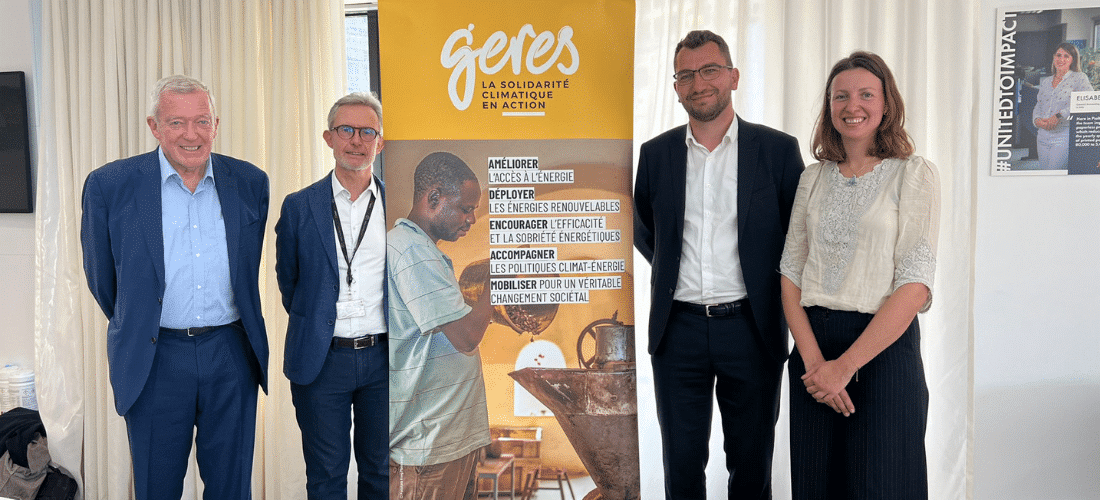
A look back at nine years of collaboration with the Nexans Foundation
On the occasion of the tenth anniversary of the Nexans Foundation, Geres was invited to testify on the last nine years of ...
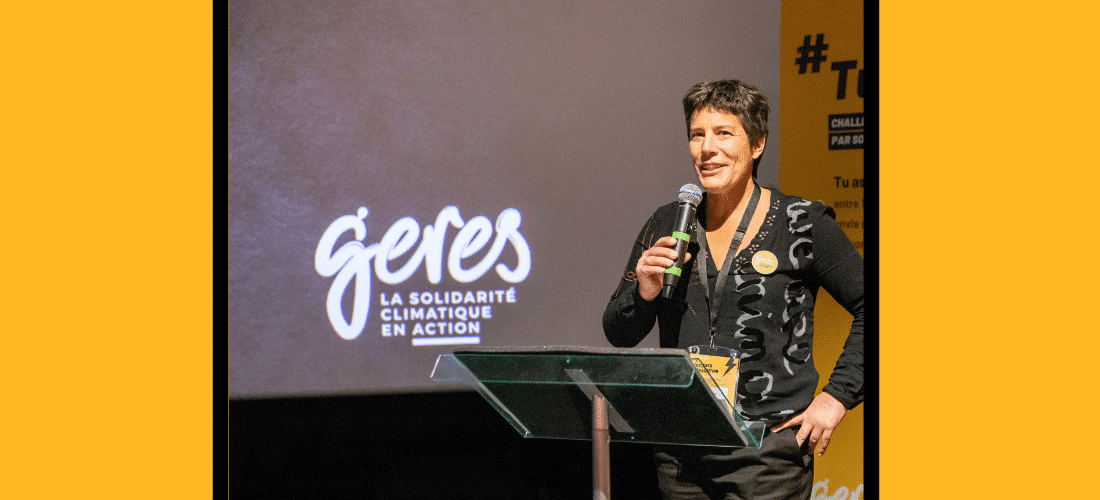
Laurence Tommasino : “In 2023, our challenge will be to step up our efforts to adapt our operating methods to different geopolitical contexts”
As we start the New Year, it's time to take stock. Laurence Tommasino, Geres executive director, tells us about the highlights for ...
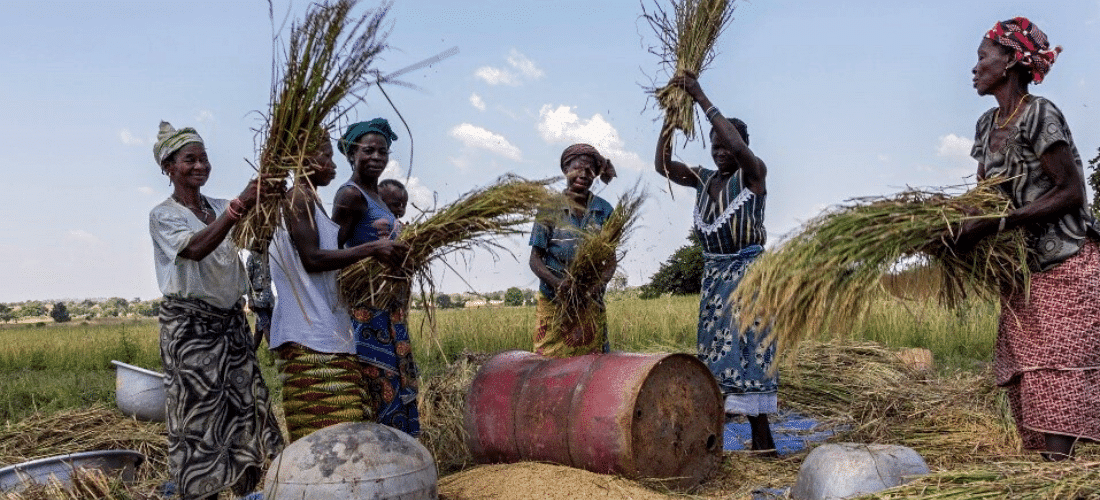
Geres is opening an office in Burkina Faso: interview with Carole Dehu, Geres country representative
It's a first: Geres is moving into Burkina Faso. We find out what's happening from Carole Dehu, Geres country representative. ...
VOUS SOUHAITEZ AGIR EN FAVEUR DE LA SOLIDARITÉ
CLIMATIQUE ET SOUTENIR NOS ACTIONS ?
Dites-nous qui vous êtes et découvrez vos moyens d’action
CITOYEN·NE·S
Parce que la Solidarité climatique est l’affaire de toutes et tous, le Geres vous donne les clés pour passer à l’action.
ENTREPRISES
En tant que dirigeant·e d’entreprise, employé·e ou client·e responsable, vous avez le pouvoir d’agir au quotidien.
INSTITUTIONS & COLLECTIVITÉS
Soutenez nos actions en France et à l’international et devenez un acteur de la Solidarité climatique.
FONDATIONS
En vous engageant aux côtés du Geres, vous contribuez à la mise en œuvre d’actions innovantes et concrètes.
